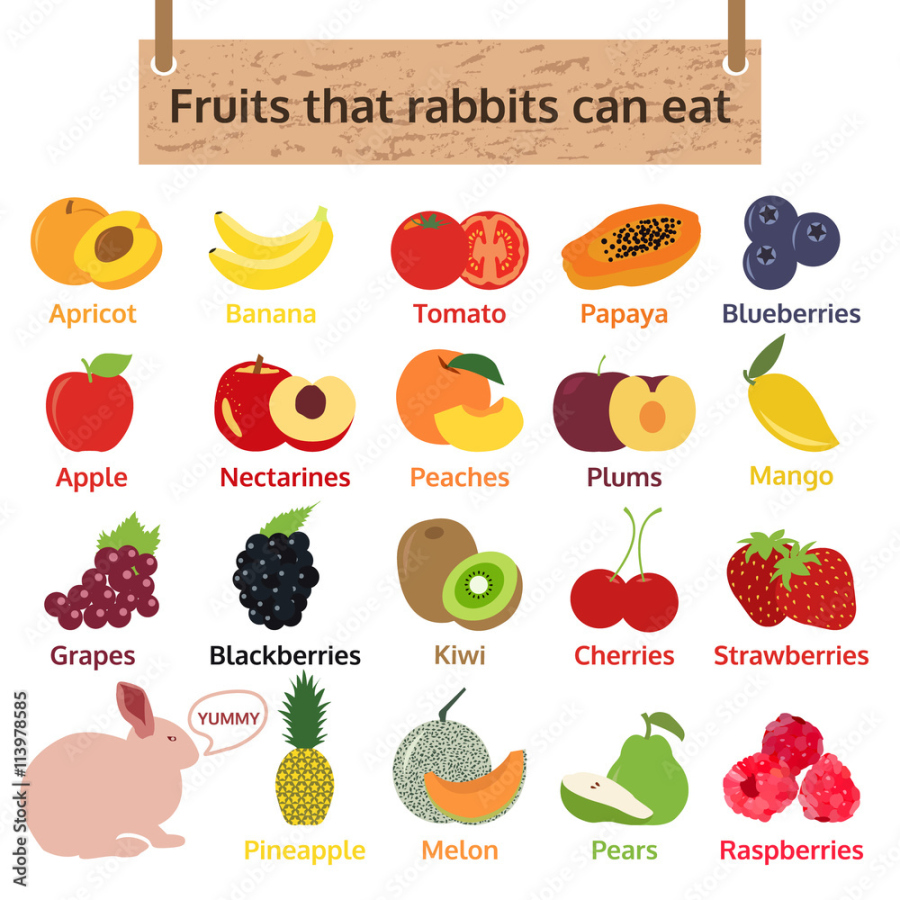What Can Rabbits Eat?
Rabbits are known for their love of munching on fresh greens, but it’s important to know that not all foods are safe for them to eat. A rabbit’s diet should consist of a balance of hay, fresh vegetables, and a small amount of pellets. In this article, we will explore what rabbits can and cannot eat, as well as some frequently asked questions about their diet.

Hay
Hay is an essential part of a rabbit’s diet, as it provides the necessary fiber to keep their digestive system healthy. It also helps to wear down their constantly growing teeth. Timothy hay is the most commonly recommended type of hay for rabbits, but other types such as orchard grass or oat hay can also be given. It’s important to ensure that the hay is fresh and free from mold or dust.
Fresh Vegetables
Rabbits love fresh vegetables and they make a great addition to their diet. However, not all vegetables are safe for rabbits to eat. It’s important to introduce new vegetables gradually and observe any reactions or digestive issues. Some safe vegetables for rabbits include:
- Carrots
- Parsley
- Broccoli
- Kale
- Romaine lettuce
- Bell peppers
It’s important to note that vegetables high in sugar, such as carrots, should be given in moderation to prevent obesity and dental problems.
Pellets
Pellets are a concentrated form of nutrition that should only make up a small portion of a rabbit’s diet. It’s important to choose high-quality pellets that are specifically formulated for rabbits. Look for pellets that are made from natural ingredients and do not contain any artificial additives. Pellets should be given in limited quantities to prevent overeating.
What Rabbits Cannot Eat
While rabbits can eat a variety of foods, there are some foods that should never be given to them. These include:
- Chocolate: Chocolate contains theobromine, which is toxic to rabbits and can cause serious health problems.
- Avocado: Avocado contains a substance called persin, which is toxic to rabbits and can cause digestive issues.
- Nuts and seeds: Nuts and seeds can be choking hazards for rabbits and can also cause digestive problems.
- Dairy products: Rabbits are lactose intolerant and cannot properly digest dairy products.
Onions and garlic: These vegetables can cause digestive issues and can be toxic to rabbits in large quantities.
Frequently Asked Questions
1. Can rabbits eat fruits?
Yes, rabbits can eat certain fruits in moderation. Some safe fruits for rabbits include apples, bananas, strawberries, and blueberries. However, fruits should be given as an occasional treat due to their high sugar content.
2. Can rabbits eat grass?
Yes, rabbits can eat grass. In fact, grass is an important part of their diet as it provides essential fiber. However, it’s important to ensure that the grass is free from pesticides or chemicals that could be harmful to the rabbit.
3. Can rabbits eat bread?
Bread is not recommended for rabbits. It does not provide any nutritional value and can cause digestive issues. It’s best to stick to a diet of hay, fresh vegetables, and a small amount of pellets.
4. Can rabbits eat lettuce?
Yes, rabbits can eat certain types of lettuce such as romaine lettuce. However, iceberg lettuce should be avoided as it has high water content and lacks nutritional value. Lettuce should be given in moderation as part of a balanced diet.
It’s important to provide rabbits with a balanced diet that includes hay, fresh vegetables, and a small amount of pellets. Hay should make up the majority of their diet, while vegetables and pellets should be given in moderation. It’s crucial to avoid feeding rabbits foods that are toxic or could cause digestive issues. By following these guidelines, you can ensure that your rabbit stays healthy and happy.
Related Articles…
Copyright Notice:
The images displayed here are sourced from the internet, with copyrights held by respective owners. For removal of any copyrighted image, please email us.